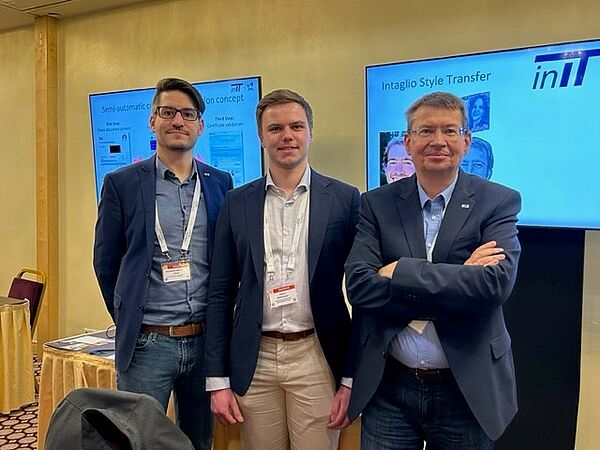The inIT was represented this year with the paper "Semi-automated Certificate Authenticity Verification on the example of medical personal protective equipment" by Julian Bültemeier, Prof. Volker Lohweg, Christoph- Alexander Holst as well as Frederik Klöckner and Benny Drescher from KEX Knowledge Exchange AG/INC Invention Center, Aachen. A semi-automatic certificate test for the testing of medical personal protective equipment, developed within the framework of the corona.KEX.net project, was presented. However, Julian Bültemeier, the main author, also pointed out the current security gap in certificates: "The current certificates do not have any security features that can be used to verify the authenticity of the documents. Therefore, the certificates are currently only subjected to a plausibility check. A forgery is currently possible with the simplest of means. The fact that this security gap represents a dramatic problem could be observed worldwide during the Corona pandemic. With the help of forged certificates, masks were put into circulation that were not only ineffective, but in some cases posed a health risk to the user due to moulds or other substances that were hazardous to health."
This alarming security gap in the area of certification of medical personal protective equipment was discussed in detail with the inIT researchers and the community during the conference. It became clear that a rethink is urgently needed to increase the trustworthiness of certification and thus the safety of medical products. This requires increased commitment on the part of the certification bodies involved as well as stronger support from the political side.
In addition to the lecture sessions, a table-top exhibition traditionally takes place at this oldest conference on the topic. The inIT was represented here with two topics: certificate of authenticity verification and automatic generation of Intaglio printing templates. The table-top was exceptionally well attended and showed that the topics of authentication of medical device certificates and new methods for banknote generation met with great interest.
The next ODDS conferences are expected to be held in Lisbon (Portugal) in 2024 and San Francisco (USA) in 2025.


